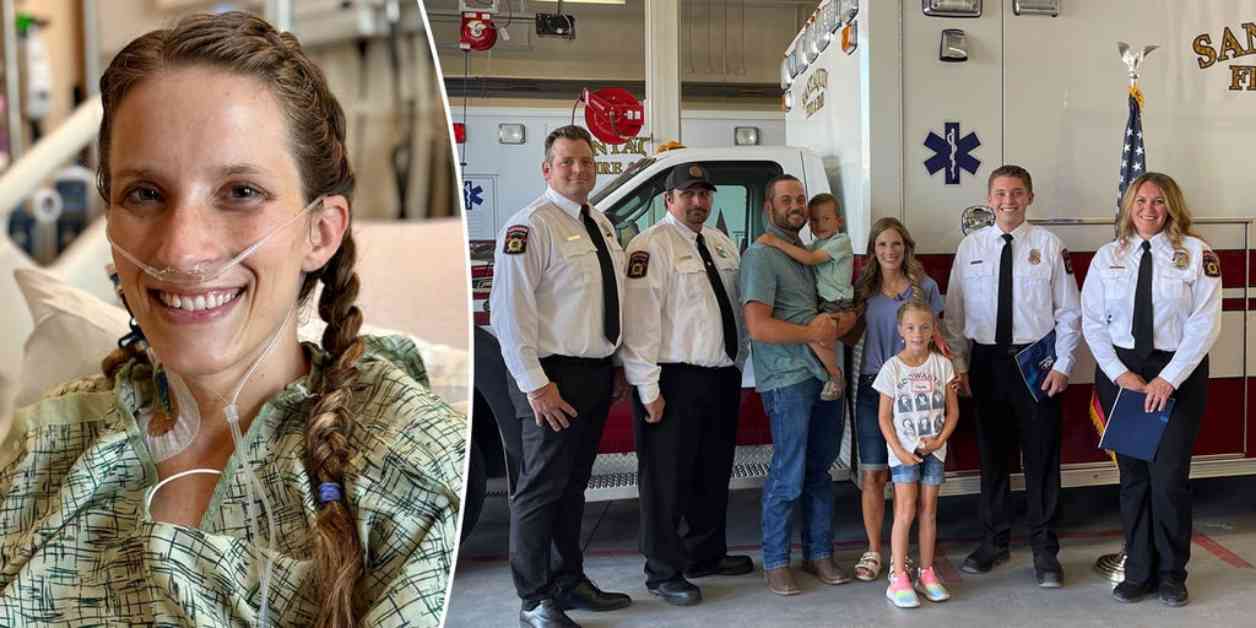Listen to Your Body: Utah Mom’s Warning After Heart Attack on Treadmill
Justine Carter’s life changed dramatically last May when a routine treadmill session turned into a near-death experience. The 33-year-old Utah mother, who considered herself fit and healthy, suddenly found herself grappling with shortness of breath, back pain that radiated to her chest, and violent vomiting just 12 minutes into her walk.
In an exclusive interview with Fox News Digital, Carter recounted the harrowing experience that led to her diagnosis of a spontaneous coronary artery dissection (SCAD), a condition characterized by a tear in the wall of a coronary artery that can result in a heart attack, heart rhythm issues, or sudden death. Despite being otherwise healthy, Carter fell victim to this rare and potentially fatal condition.
The Unpredictability of SCAD
SCAD is a condition that often affects women in their 40s and 50s, with no known cause or specific risk factors. According to the American Heart Association (AHA), SCAD is believed to be influenced by various factors such as arterial abnormalities, genetics, hormonal fluctuations, and inflammatory issues. Dr. Mark Bair, the medical director of the emergency department at HCA Healthcare’s Mountain View Hospital, where Carter was treated, emphasized that SCAD patients often exhibit few or no traditional risk factors for heart disease.
For Carter, the first signs of trouble came unexpectedly while she was on the treadmill, highlighting the unpredictable nature of SCAD. Despite feeling fatigued that day, she had no warning signs of an impending heart attack. The lack of clear indicators underscores the importance of listening to one’s body and seeking medical attention promptly if something feels amiss.
Lessons Learned and Life-Saving Techniques
Carter’s journey to recovery has been marked by valuable lessons and insights. She emphasizes the importance of women prioritizing their own health and well-being, urging them to listen to their bodies and not ignore potential warning signs. In the aftermath of her SCAD episodes, Carter has learned to embrace self-care and not hesitate to seek help when needed.
Moreover, Carter and her mother-in-law, Teresa Carter, stress the importance of being prepared to administer CPR in emergency situations. As seen in Carter’s case, prompt action and life-saving techniques played a crucial role in her survival. The ability to perform CPR can make a significant difference in the outcome of a cardiac emergency, underscoring the importance of being equipped with basic first aid skills.
Living Fearlessly and Gratefully
Despite the traumatic events she endured, Carter refuses to live in fear. She encourages others to embrace life fully and appreciate each moment, recognizing the fragility and unpredictability of existence. Grateful for the exceptional care she received at HCA Healthcare Mountain View Hospital, Carter expresses profound gratitude to the medical team that played a pivotal role in her recovery.
Carter’s story serves as a poignant reminder of the importance of listening to one’s body, being prepared for emergencies, and cherishing the gift of life. By sharing her experience and insights, she hopes to raise awareness about SCAD and empower others to prioritize their health and well-being. In the face of adversity, Carter exemplifies resilience, gratitude, and a steadfast commitment to living fearlessly.




